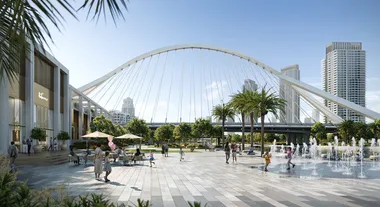Tenancy contract renewal in Dubai: A guide for tenants 2024
- Better Informed
- 25 Jun, 2024

Table of Contents
Is your tenancy contract expiring soon? If so, your property management company or landlord may already have sent you a notice to renew your contract. But, if it is your first time renewing your contract or you are unaware of the renewal process, this blog has all you need to know.
Important Rules and Laws to Consider Before Contract Renewal
Your landlord must inform you of the rent increase three months before the contract expires. Law No. 26 of 2007 states that if the landlord fails to provide any electronic or written communication at least 90 days before the end of the tenancy, then the contract will automatically renew at the same rental price and terms and conditions as the previous year. Even if the landlord misses the deadline by one day, there will be no rent increase.
Now, suppose you have received a rent increment notice. In that case, it is advisable to start the renewal process earlier, especially if you are planning to negotiate rent or make other changes to the contract. This way, you and your landlord can have enough time to discuss and agree on the terms of the new contract before the current one ends. Don’t forget that according to the law, the maximum increase in the rent can be 20% of the current rent amount, not more than that.
You can use the newly updated RERA rental increase calculator to identify the possible rent increase. Any rent increases proposed by the landlord must align with the RERA rental index. Whenever there is a disagreement over a rent increase, either party may refer the issue to the Rental Dispute Settlement Centre. A streamlined process is in place for resolving disputes, which usually takes a few weeks to complete.
If you are unsure when your tenancy contract ends, check your current contract or contact your landlord for clarification. Most tenancy contracts in Dubai are for one year, and the renewal process should begin a few months before the end of this term.

How to Renew a Tenancy Contract
Follow these steps to renew your tenancy contract:
Step 1
Contact your landlord or real estate agent to give them the post-dated checks for the upcoming year. The number of cheques you need to write and if you need to pay any amount in cash will depend on your rental agreement.
Step 2
Collect the receipt as proof of check deposit because the renewed contract from the agent may take one day to receive.
Step 3
Make sure the landlord signs the new contract, then register it with Ejari. The renewal fee is AED 215 + VAT.
Ejari is an online registration system introduced by the Dubai Land Department (DLD) to protect the rights of tenants and landlords.
Documents Required for Tenancy Renewal
You will need to submit the following documents to renew your Ejari:
- Original tenancy contract signed by the landlord
- Tenant's original Emirates ID
- Copy of tenant’s passport and visa
- Copy of landlord’s passport
- Copy of title deed
- Recent DEWA bill

Tenancy Contract Renewal Process
There are three ways to register with Ejari for contract renewal.
- Dubai Land Department DLD website
- Dubai Rest mobile application
- Real Estate Services Trustee offices
Dubai Land Department DLD website
To register Ejari with the Dubai Land Department DLD website, follow these steps:
- Login to the official DLD Website
- Upload the required documents
- Pay the Ejari renewal fee through a credit card or Noqodi
- Submit the form
Dubai Rest Mobile App
Follow these steps to renew Ejari using a Dubai Rest mobile application:
- Install the Dubai Rest app available on IOS and Android
- Tap “Register” followed by “Register Ejari Contract”
- Upload the documents
- Submit the fee
Real Estate Services Trustee offices
To renew your Ejari at real estate services trustee offices in Dubai, follow these steps:
- Visit one of the Ejari renewal centres given below
- Submit the documents
- Make tenancy renewal fee payment
- Collect the receipt
- Receive your renewed Ejari certificate
Here are some of Dubai Real Estate Service Trustee centres for Ejari renewal in person.
Al Manara Real Estate Registration Trustee
Location: First floor, Al Manara Centre, Sheikh Zayed Road – Al Safa
Al Tabu Real Estate Trustee Services
Location: Al Twar Centre, Al Nahda Road, Al Qusais 2
Al Taresh Real Estate Services Trustee
Location: First floor, Dubai Municipality, Al Kifaf Centre
Al Ameen Al Aqaree
Location: Business Village, near Economic Department – Port Saeed
Conclusion
Renewing your tenancy contract in Dubai requires understanding and following specific rules and procedures provided in this blog. Check your contract's expiry date and begin renewal early to avoid any last-minute complications. Ensure your landlord informs you about any rent increase at least 90 days before the contract ends. Use tools like the RERA rental calculator to verify the legitimacy of any proposed increase. By staying informed and proactive, you can safeguard your rights and enjoy a hassle-free tenancy renewal experience in Dubai.
If you have further questions about renewing your tenancy contract, email info@dubailand.gov.ae or call +971 – 8004488. Remember to include your name and registered phone number in the email.



















